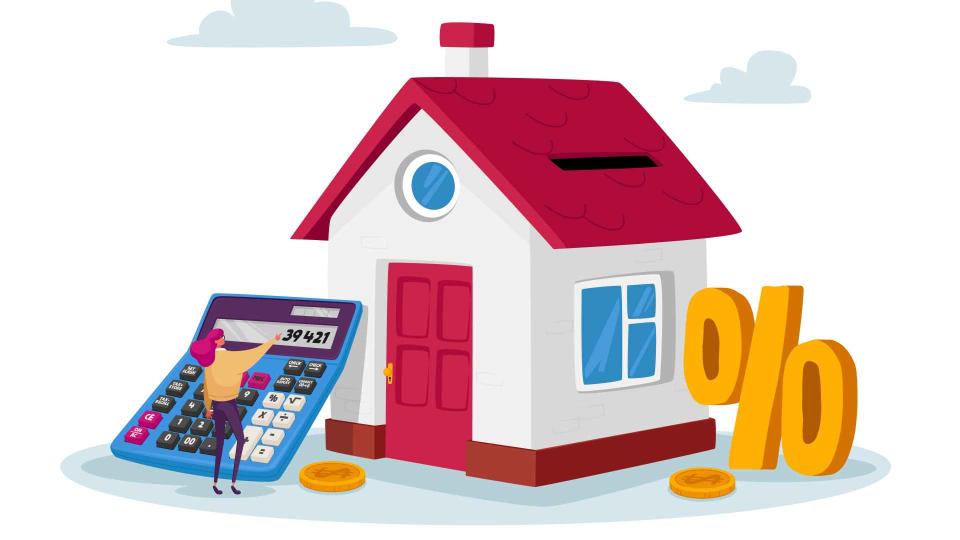‘Rich Dad’ Robert Kiyosaki: Follow This Simple Formula For Real Estate Success

Robert Kiyosaki is the founder of the “Rich Dad” empire of financial books, podcasts and other communications. One of his primary recommendations for building wealth is to invest in income-producing real estate.
Buying a Vacation Home? Check Out These 5 Affordable Islands in the Caribbean
Find Out: 3 Things You Must Do When Your Savings Reach $50,000
But to succeed in the real estate game, you’ll have to do your homework. Simply jumping at any real estate opportunity you find isn’t the answer. Rather, Kiyosaki suggests you apply a two-part formula to any potential real estate investment to see if it will be profitable for you.
The Rich Dad Personal Finance Team explained the process in a Dec. 14, 2023 blog post. Here’s a summary of the approach, along with suggestions as to how you could integrate it into your own quest for an income-generating property.
Sponsored: Get Paid To Scroll. Start Now
Find Out What the Cash-on-Cash Return Is
For Kiyosaki, any real estate investment that doesn’t provide positive cash flow is a waste of time. However, he doesn’t believe in esoteric equations like internal rate of return and net present value to evaluate a property.
Rather, he uses cash-on-cash return, which is calculated by dividing the positive net cash flow of an investment by the down payment.
Imagine, for example, you buy a $500,000 property with a 20% down payment of $100,000. You project you’ll earn $2,000 per month on that investment after all of your expenses are paid.
In this scenario, your cash-on-cash return would be your annual income ($24,000) divided by your down payment of $100,000. That provides a cash-on-cash return of 24%.
Different investors will have different standards as to what makes an investment worthwhile. But in Kiyosaki’s view, calculating the cash-on-cash return is an essential step to determine if a real estate investment offers a good chance for success.
Grant Cardone: These Will Be the Top Places To Buy Real Estate Over the Next Decade
Do Your Due Diligence for a Real Estate Property
Due diligence, as Kiyosaki describes it, is a “roll up your sleeves activity” designed to ensure that you are getting all the value that you paid for.
Kiyosaki says investors must take the time to look into every nook and cranny of a real estate investment to find any hidden costs that may alter your cash-on-cash return calculation.
For example, if you’ll need to upgrade the plumbing in a building, replace the roof or rewire the electrical panel, these are all major costs that will eat into the investment’s profitability. Failing to look over an investment’s financials, conduct inspections and perform rent roll over evaluations can all result in surprises down the road that could tip a solid investment into a poor one.
In many cases, you’ll want to renegotiate the original purchase price so that the investment remains profitable for you.
Kiyosaki himself uses a lengthy checklist to perform his due diligence. Here are just a few of the 30+ items on his checklist:
Current rent roster and security deposits
Mortgage and insurance information
All agreements, including listing, rental, commission and easement
All contracts and permits, including management and government
Cash receipts and expenditures
List of vendors and utility companies, including bills
Tax bills, returns and property tax statements
Income and expense statements
The bottom line is that to perform high-quality due diligence, you’ll need to look into every single aspect of an investment before you sign an agreement.
Must Do Both
Cash-on-cash return may show the mathematical potential of an investment, but according to Kiyosaki, it’s worthless without due diligence. But the reverse is also true.
Imagine you approach things from the perspective of “due diligence is enough.” You thoroughly inspect a property and find that it has no major flaws or needed repairs, and all of the tenants love the property and want to stay there forever.
That’s a great start in terms of making an investment interesting, but if you leave out the cash-on-cash return analysis, you might pull the trigger on an unprofitable property.
Imagine that the reason this “flawless” property is full of happy renters is because they are long-term tenants paying below-market rents that don’t even cover the cost of operating the building. In that case, you’ll be losing money every month on this “great investment.”
Sure, you could raise the rent, but many cities restrict how much you can bump it up. Even if you manage to raise rents to market levels, it may take you many months just to get new tenants in, during which time you’ll be hemorrhaging money.
As Kiyosaki puts it, the recipe for success is easy: cash-on-cash return + due diligence. If you do both right, the financial personality says, “you’ll be in great shape.”
More From GOBankingRates
This article originally appeared on GOBankingRates.com: ‘Rich Dad’ Robert Kiyosaki: Follow This Simple Formula For Real Estate Success

 Yahoo Finance
Yahoo Finance 